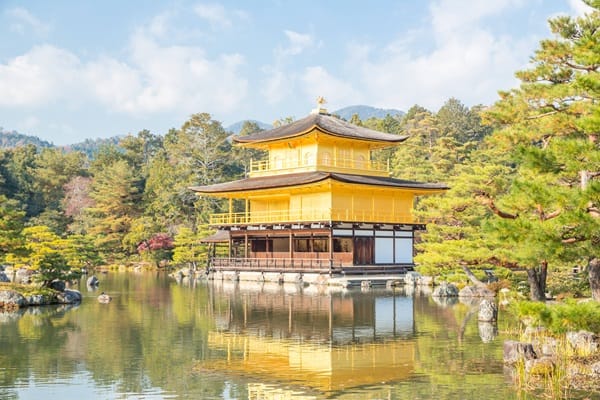Traveling for business to Japan and Korea presents unique opportunities and challenges, blending cultural nuances with modern business practices. Understanding the essentials can make all the difference in building strong professional relationships and navigating the business environment effectively. Staying connected with an eSIM for Japan and Korea is essential for business travellers who need reliable data for navigation, communication, and quick access to local resources. Here’s what business travellers should know to make their visits productive and seamless.
Cultural etiquette and business formalities
One of the most important aspects of business travel to Japan and Korea is understanding their distinct cultural etiquettes. In Japan, formality is deeply ingrained in business interactions. A slight bow is a common greeting, and exchanging business cards, or meishi, is a ritual. Present your card with both hands, ensuring the text faces the recipient, and take a moment to read any card you receive before putting it away.
A respectful bow or handshake is appropriate in Korea, especially among business professionals. Always use both hands when giving or receiving anything, including business cards, as this gesture shows respect. Address colleagues by their title and last name unless invited to do otherwise. An eSIM lets you quickly research and confirm business etiquette tips, ensuring you make a great impression.
Language considerations and communication
While many business professionals in Japan and Korea speak English, it’s appreciated when visitors try to speak basic phrases in the local language. In Japan, phrases such as Arigatou gozaimasu (Thank you very much) and Sumimasen (Excuse me) go a long way. Simple words like Kamsahamnida (Thank you) and Annyeonghaseyo (Hello) can make interactions smoother in Korea.
However, nuanced communication styles are important to note. Japanese professionals may use indirect language to maintain harmony, so reading between the lines is crucial. Koreans tend to be more direct but still value respectful and considerate communication. With an eSIM, you can access translation apps and language tools to help bridge any communication gaps during meetings.
Punctuality and time management
Both Japan and Korea highly value punctuality. Arriving late to a business meeting is disrespectful and can set the wrong tone for future interactions. Always aim to arrive at least 10 minutes early for meetings. This level of punctuality reflects your respect for others’ time and is seen as a sign of professionalism.
If you’re navigating new cities or traveling between meetings, an eSIM can be a game changer. It allows you to access maps, public transport schedules, and route planners in real-time, ensuring you stay on track and arrive punctually.
Dress code and professional attire
Dressing appropriately is an essential part of business culture in both Japan and Korea. In Japan, conservative business attire is standard—dark suits, white shirts, subtleties for men and simple, professional dresses or suits for women. The emphasis is on looking neat and well-groomed.
In Korea, business attire is formal but tends to incorporate modern fashion elements. Tailored suits are the norm, and attention to detail, such as polished shoes and clean cuts, is highly valued. Dressing well shows respect for the business meeting and your potential partners. With a Japan and Korea eSIM, you can research specific dress codes for various business settings, helping you choose the right attire for any occasion.
Dining etiquette and networking meals
Networking over meals is common in Japan and Korea, and knowing dining etiquette can enhance your business relationships. In Japan, meals often begin with the phrase Itadakimasu (I humbly receive) and end with Gochisousama deshita (Thank you for the meal). It is polite to pour drinks for others and wait for the host to start the meal before you begin eating.
In Korea, dining is an integral part of business networking. Meals often start with a toast, commonly called Geonbae (Cheers). The eldest or highest-ranking individual usually begins eating first and pouring drinks for colleagues is a sign of respect. An eSIM can help you look up local dining etiquette tips, translations, and menu items to avoid confusion during business meals.
Adapting to work culture and hierarchies
Work culture in Japan and Korea emphasizes hierarchy and respect for seniority. In Japan, team decisions often go through multiple layers of management, which can lead to longer decision-making processes. Patience and maintaining a respectful approach are key to successful collaborations.
In Korea, hierarchy plays a major role, but business culture can be more fast-paced and adaptive. Understanding who holds decision-making power and addressing them appropriately during meetings is crucial. A respectful and open attitude goes a long way in both countries.
Staying connected and productive
Staying connected is essential for seamless communication and productivity for business travellers. An eSIM for Japan and Korea offers the convenience of reliable data without swapping physical SIM cards, ensuring you can respond to emails, access video conferencing apps, and coordinate logistics without missing a beat. It’s particularly beneficial when navigating between meetings or keeping up with sudden changes in your schedule.
Final thoughts
Understanding the unique business cultures of Japan and Korea can make your travel experience more productive and enjoyable. From mastering etiquette to staying connected with an eSIM for Japan and Korea, these tips will help you navigate professional interactions smoothly. With the right preparation, your business journey to Japan and Korea can be rewarding and successful.

